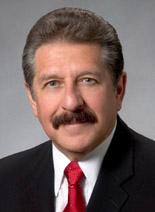CSU chief defends pay raises

:
September 24, 2007
The California State University Board of Trustees voted Sept. 19 to give pay raises to 28 of its highest ranking executives, including Sacramento State President Alexander Gonzalez and 21 other campus presidents, according to a California Faculty Association press release.
The raises come at a time when CSU compensation practices are already being audited by the state, according to the press release.
However, the trustees’ decision was not without dissenters.
According to the press release, Trustee Ricardo F. Icaza said, “It is absurd to consider a pay increase right now.”
In response to criticism, Chancellor Charles B. Reed held a conference call to defend the board’s decision to raise executive pay.
Reed said the raises were justified because, according to a report from the Mercer Group, the base salary of CSU executives lagged behind those of executives in their comparison group by nearly 46 percent. The Mercer Group used the same comparison group and methodology used by the California Postsecondary Education Commission in its report on faculty compensation.
Reed said The Mercer Group was chosen because it is nationally respected in the field of compensation analysis.
Both Mercer and CPEC’s reports compare only base salaries, excluding all benefits.
According to a Commission Report published in March by CPEC, the company chose not to publish a study of executive compensation this year because the method of comparison was flawed. The report stated that in order for an accurate comparison to be done, total compensation, including benefits, had to be compared rather than just the base salary.
However, CPEC still published a report on faculty compensation using the same method they found to be lacking for executive compensation.
During the call, Reed addressed the perception that there was a conflict of interest in the trustees vote for executive pay raises. He said that aside from travel expenses, “trustees do not get paid for anything.”
Reed said the trustees are only interested in fairly compensating executives and hiring the best available.
According to the CSU website, Reed, an ex-officio member of the board of trustees, also received a pay raise during the meeting that brought his base salary up from $377,000 a year to $421,500 a year.
The chancellor also discussed two reform bills that opponents of the raises say would make the aions of the Trustees more transparent to the public.
When asked about Assembly Bill 1413, Reed said that it “did not have anything to do with compensation.” He said the bill would allow ex-officio members to appoint a representative to attend Trustee meetings if they themselves cannot attend.
Reed said he opposed the bill because it only allows appointed representatives to come to meetings of the CSU Trustees, but not the University of California Board of Regents. If passed, Reed said ex-officio members would never come to meetings of the CSU Trustees and would only attend the meetings of the UC Regents.
“I don’t think we’re second class,” he said.
Reed said the CSU was “the most transparent university” in regard to executive compensation. He said that before every meeting, an agenda book is mailed out, press releases are issued and information is posted on the CSU website.
Responding to doubts about the benefits of a pay raise for the CSU system, Reed said they’re necessary to hire qualified people for executive positions.
Reed said successful universities require good leaders, but that he had been turned down many times by potential recruits because of the 46 percent pay gap with the rest of the market. He said the CSU system has to compete with universities across the nation and it is this competition that sets the compensation rates for presidents.
Not everyone agrees the high salaries given to CSU executives are justified. In an e-mail from Lila Jacobs, president of the Sac State chapter of the CFA, she said that “many private campus presidents generally have greater responsibilities than CSU presidents.”
CSU Media Relations Specialist Paul Browning disagreed.
He said the comparison group selected for the Mercer study chose universities with presidents and chancellors who serve in a similar executive capacity.
According to the Mercer report, 15 of the 20 institutions compared were considered to be in the public sector, just like the CSU.
Browning said Mildred Garcia, the most recently hired CSU president and the president of Domiguez Hills, was hired at $40,000 less than her previous job. He said presidents join the CSU system for a number of reasons, and that monetary compensation is one of them.
Vice President of Public Affairs Frank Whitlatch said that with the increase Gonzalez’s pay will go from $265,225 a year to $295,000 a year. He said “there will always be people who complain when an executive or president gets a pay raise.”
Gonzalez was unavailable for comment.
Michael Spitler can be reached at [email protected].





























































































































